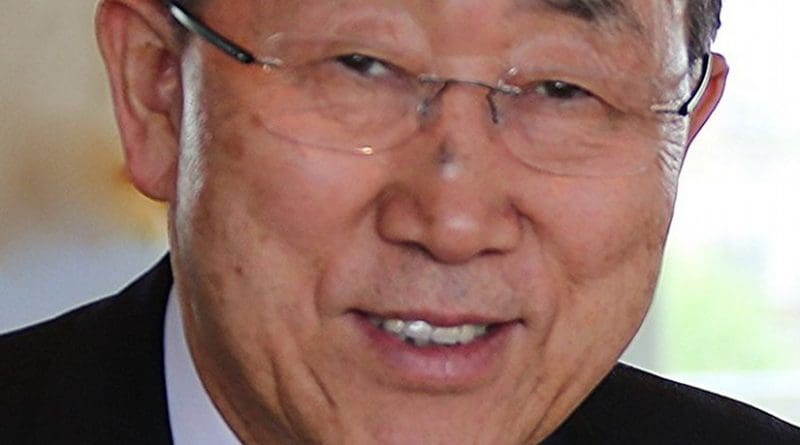Ban: Now Is Time To Act On Sustainable Development Goals And Paris Climate Agreement
This year’s World Economic Forum Annual Meeting is the first opportunity to take stock of the victories of 2015, Ban Ki-moon, Secretary-General, United Nations, New York, told participants. Now it is time to act. “We have delivered the 2030 Sustainable Development Goals (SDGs) and the Paris Climate Agreement (COP21),” he said. “The only agenda greater than our promises is to deliver and implement these two important agreements.”
Ban said the 17 SDGs and climate change are indivisible because climate change undermines development gains. “Now, we have a holistic approach,” he said. “The SDGs move us towards development models that are more sustainable.” He pointed to the critical nexus between development and climate change – disaster risk reduction, which also undermines development gains.
The Paris Climate Agreement gave the private sector “an unprecedented opportunity” to foster a race to the top of climate ambitions, Ban added. There is much work ahead.
Laurent Fabius, Minister of Foreign Affairs and International Development of France, praised the private sector for its commitment and engagement during the Paris Climate Agreement negotiations. “Companies are doing a wonderful job. Now we have to be sure that new initiatives will be taken on by civil society.” COP21 has social implications, including migration, and questions of war and peace. “This agreement is a major pillar for security. We have to explain this to those who don’t understand this. This is not the final point, it is a turning point,” he said.
Daniel Kablan Duncan, Prime Minister of Côte d’Ivoire, said his country is committed to changing its energy mix. The country is experiencing exponential growth, which is set to hit double-digit GDP in the next four years. Yet, Duncan is committed to fighting deforestation and cleaning up the country’s transport sector.
Sharan Burrow, General Secretary, International Trade Union Confederation (ITUC), Brussels, a Co-Chair of the World Economic Forum Annual Meeting 2016, has been advocating for multilateral partnerships to deliver green growth and good jobs. “We cannot have a future based on inequality and climate devastation,” she said. Achieving the SDGs and realizing the promises of COP21 will require “incredible systems change … it will be faster than any industrial revolution we have faced to date.” Burrow pointed to the good news that jobs in renewable energy are outpacing those in other sectors by 20 times. She called for a Transition Fund funded by a small percentage of carbon pricing or by reducing fossil-fuel subsidies.
Erna Solberg, Prime Minister of Norway, pointed to the success of the Tropical Rainforest Alliance 2020 that her country supports. “It is one of the biggest contributions you can make,” she said. “We are building up a structure and learning from that together with local authorities and governments.” Governments face the dilemma of using taxpayers’ money to fund programmes that do not always work, Solberg added. The SDG targets will not be met unless jobs are created and there is social fairness. A challenge ahead is the fear that decarbonizing economies will lead to job loss.
There was enormous momentum from the private sector during the Paris Agreement negotiations, said Paul Polman, Chief Executive Officer, Unilever, United Kingdom. “The private sector understood the enormous costs and threats involved, but also the enormous opportunities presented in changing our system.”
Success will depend on addressing market inefficiencies, including fuel subsidies and the need to put a price on carbon; building on existing market momentum and rolling more people into it; and eliminating the inefficiencies in the global financial system.
The will is there. Polman pointed to a new initiative launched today in Davos to put business at the centre of sustainable development. The Global Commission on Business and Sustainable Development is a multistakeholder initiative to make the compelling business case for the private sector to engage in achieving the SDGs.
It is time to put a price on carbon. Europe has done it; China and Canada are set to follow. Jim Yong Kim, President, World Bank, Washington DC, pointed out that many corporations are already operating with an internal price on carbon. “If you are not working with an internal price on carbon, you should start tomorrow,” he said. If you are not prepared to think about low-carbon solutions, you will be at a disadvantage.

